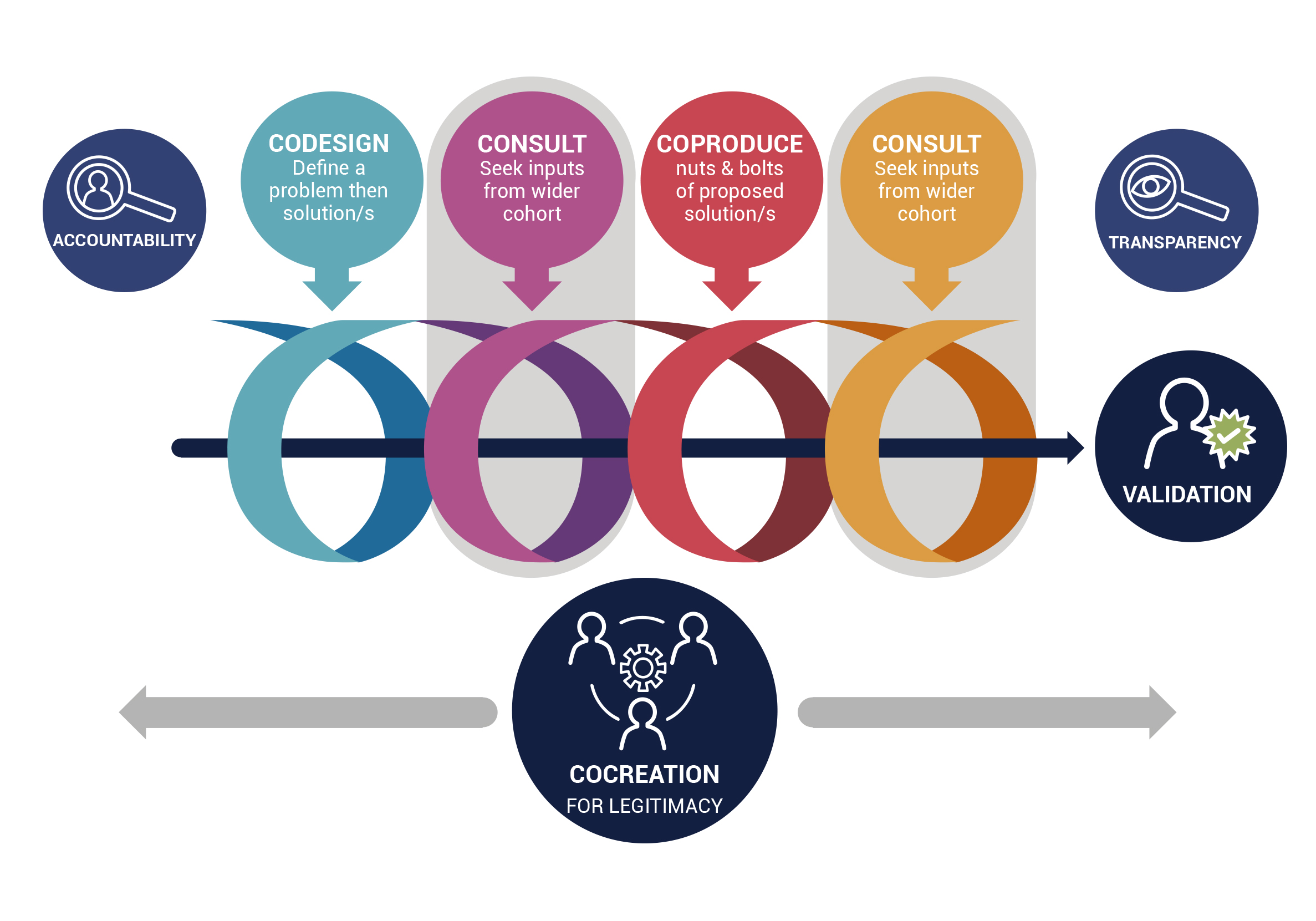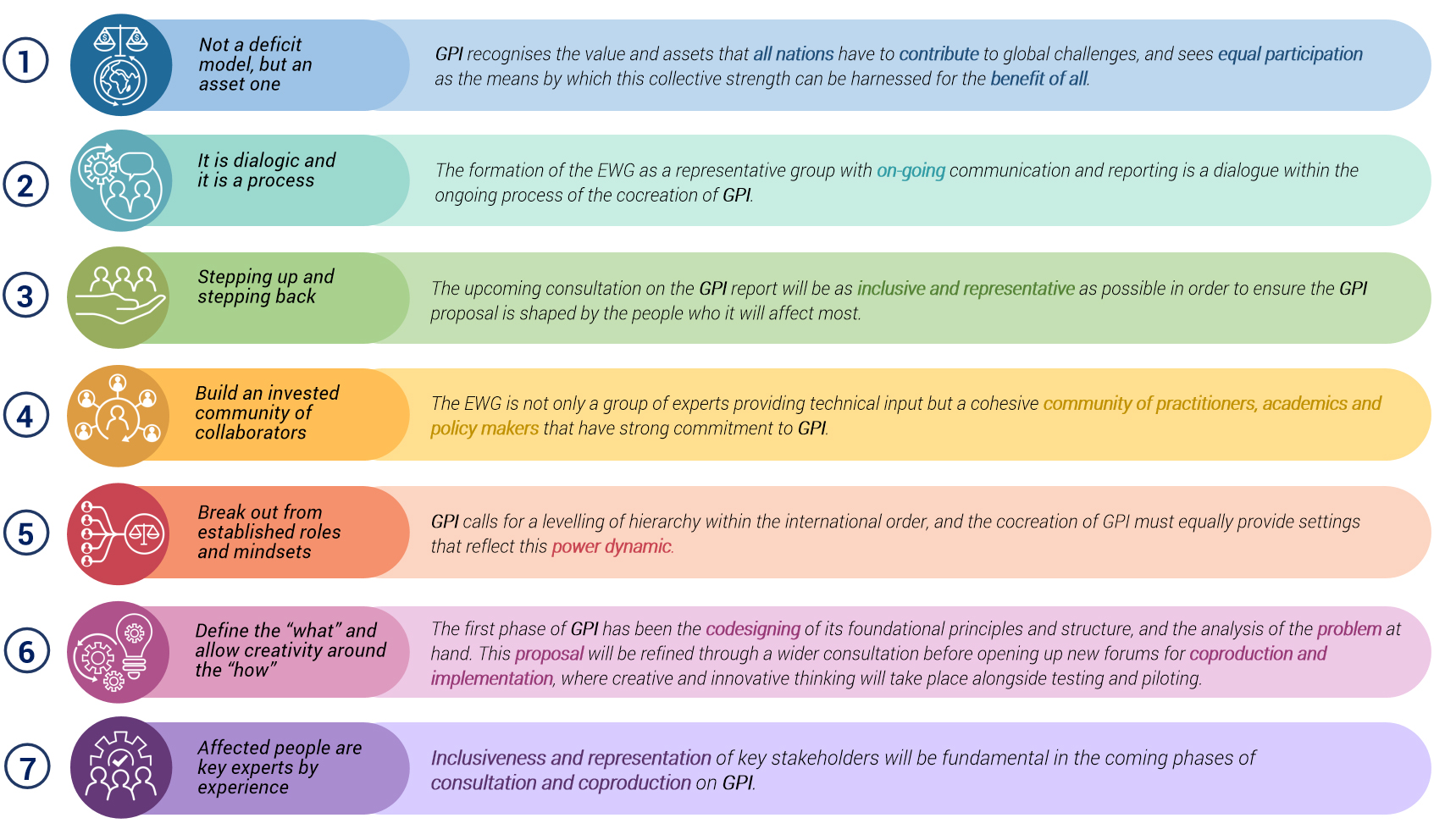Cocreation for Legitimacy
Global Public Investment (GPI) is an ambitious, out-of-the-box and transformative approach to some of the most pressing problems international society confronts: from the pandemic to climate change. It has the goal of bringing about a major paradigm shift in how we raise international public finance. It has struck a chord of recognition amongst a growing group of donors, practitioners and academics. And it has the potential to inspire people and mobilise broad support.
But GPI cannot be given form by a group of experts alone, however influential and knowledgeable they are. It has to be done through a broader process of cocreation.

The term ‘co-creation’ has its origins in the business world, but it is starting to be taken up in the development and policy sector from which this recent definition is taken: Cocreation is an iterative, equitable process that removes barriers for all actors to meaningfully contribute their knowledge and skills to achieve sustainable and scalable solutions to bring positive social innovation into the world.
Of course, the core principles of cocreation have been fundamental to community development practice for decades. Back in 1970, Paolo Freire described a model of cocreating knowledge in Pedagogy of the Oppressed, where he wrote: “It is not our role to speak to the people about our own view of the world, nor to attempt to impose that view on them, but rather to dialogue with the people about their view and ours. We must realize that their view of the world, manifested variously in their action, reflects their situation in the world.”
For us, the idea of cocreation has seven core principles:

The concept of Global Public Investment has been cocreated through many meetings and deliberations over the last few years, both virtual and in-person, with all types of organisations all over the world. The current global consultation is the latest and most comprehensive example of the EWG’s commitment to cocreation.
Cocreation and Consultation for GPI: Best Practices and Principles
